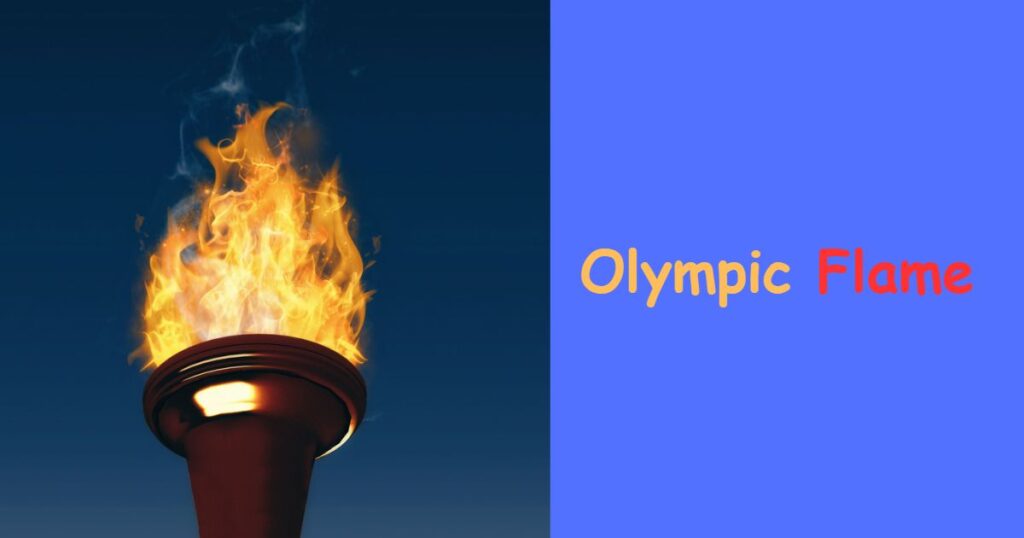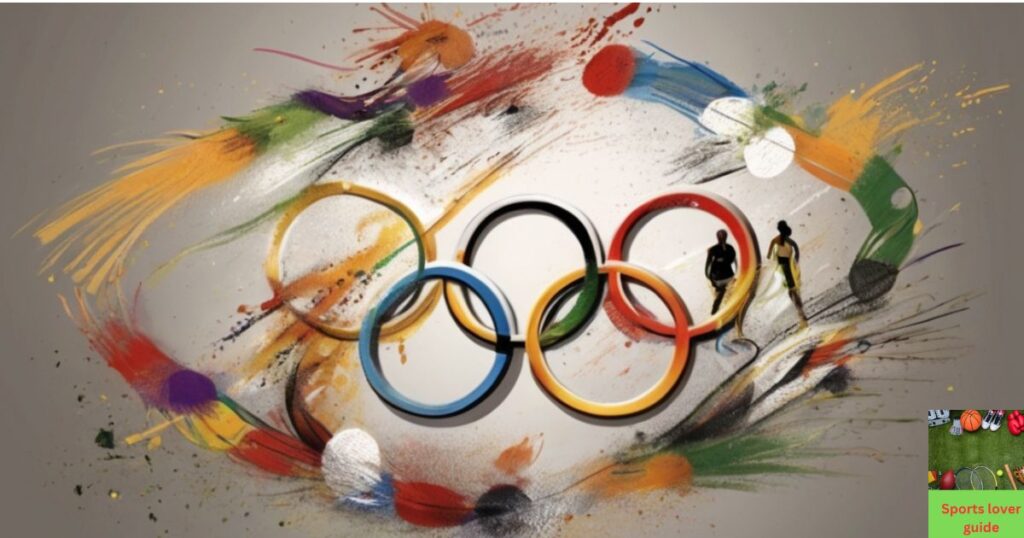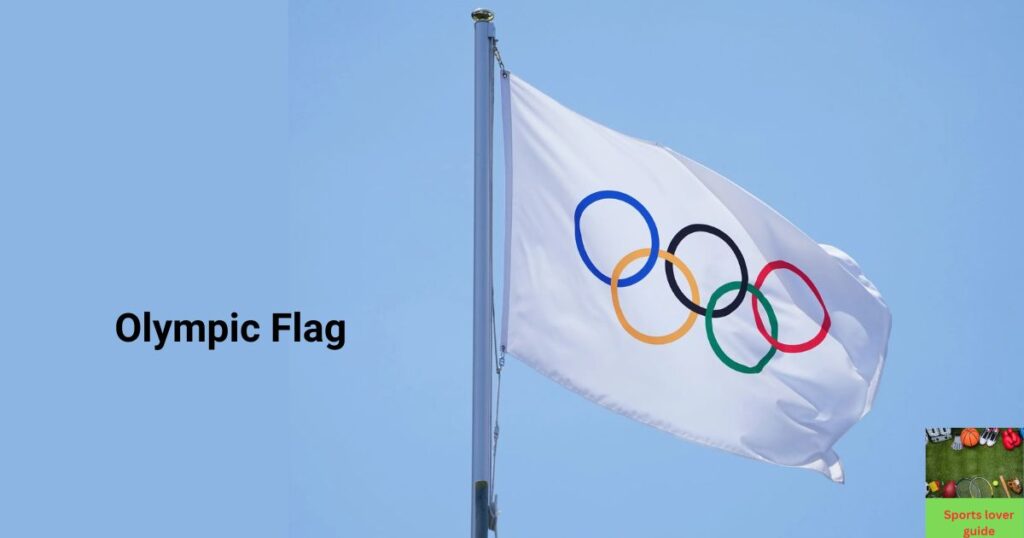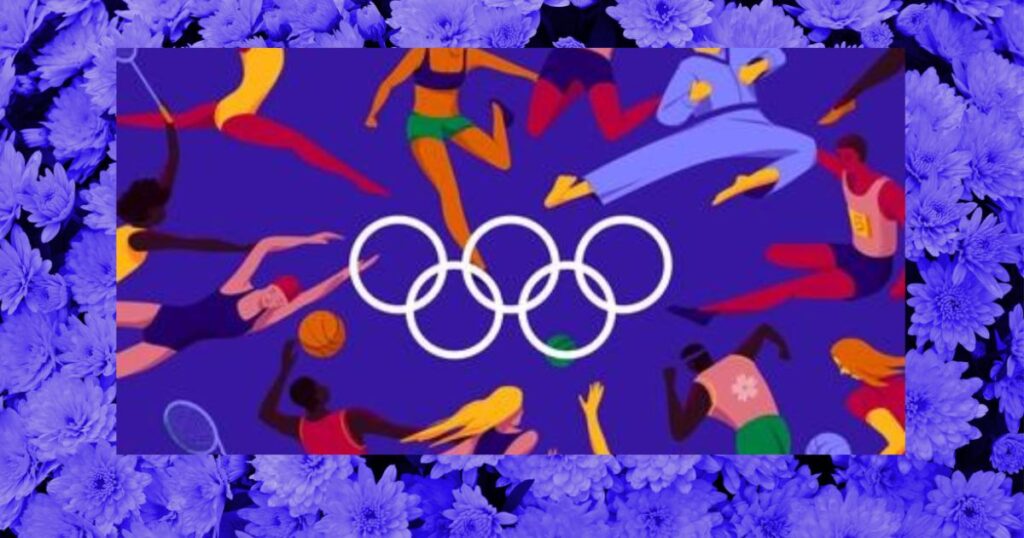Origin and history of the Olympic games
Ancient Greeks loved sports! Every four years, they held huge games to honor Zeus, their strongest god. These started in 776 BC and were such a hit, that even warring cities paused to compete. Running, wrestling, chariot racing, and even a boxing-wrestling mix were all the madness! The games got so popular, they built bigger stadiums and welcomed people from distant lands. Winners didn’t get gold medals, but cool olive wreaths, prizes, and poems were their reward. With amazing buildings showing off Greek skill and famous artists celebrating champions, the Olympics were a super fun mix of sports, religion, and honoring the greatest athletes!
The Modern Olympic Games
Organization and Operation of the Olympic Games
International Olympic Committee (IOC):
- Set the rules: Like any good game, the Olympics need clear rules for fairness. The IOC writes the rulebook for each edition, covering things like judging, equipment, and competition format.
- Bring everyone together: Different countries (national teams) and sports organizations ( swimming or gymnastics) all need to work together. The IOC acts as a bridge, connecting them all for a smooth competition.
- Plan the big event: Hosting the Olympics is a huge task! The IOC helps decide where the Games will be held and works with the host city to build venues, organize events, and ensure everything runs on time.
So, the IOC is the boss of the Olympic games party, making sure everyone has fun and plays fair!
National Olympic Committee
Each country at the Olympic games has a special team called the National Olympic Committee (NOC). They’re like the mini-bosses of the Games for their country, making sure everything runs smoothly for their athletes. Here’s what they do:
- Boss of all sports: They oversee all the sports in their country that are part of the Olympics.
- Teamwork makes the dream work: They have people from different sports organizations working together, like a mini-United Nations of sports!
- No cheating!: They have to be fair and play by the rules, without getting influenced by politics, money, or religion.
So, the NOC is like a mini-IOC for each country, keeping things fair and helping their athletes shine!
International Federations
Each sport has its booth, run by a special group called the International Federation (IF). They’re like the booth managers, making sure everything runs smoothly for their sport:
- Picking the best players: They choose the top athletes from each country to compete in the Games. Like a talent show, they want the best acts!
- Keeping athletes happy: Each country’s National Olympic Committee (NOC) acts like a team companion. They look after their athletes when they travel and stay at the special Olympic Village, making sure they’re happy and comfortable to compete.
So, the IFs are the sports experts, picking the best players, while the NOCs are the team cheerleaders, ensuring their athletes are ready to shine!
Athlete Qualification
To compete in the Olympic games, you got to be on Team Country! That means being a citizen of the nation you represent. Plus, you got to play by the rules – both the big ones set by the Olympics (IOC) and the ones for your specific sport (International Federation).
Back in the day, only “amateurs,” meaning non-professionals, could join the Games. But things changed! Now, most sports welcome professional athletes because, let’s face it, being an Olympian takes serious training and sometimes needs financial support. So, as long as you follow the rules and represent your country well, you’re welcome to chase that Olympic dream, pro or not!
Number of Athletes:
- The total number of athletes a nation can enter in the Games is limited by IOC-approved competition rules.
- Team sizes can vary, ranging from one-member teams to those comprising several hundred athletes.
The Olympic Principles and Traditions
Olympic Creed: Winning isn’t everything! Trying your best and giving it your all matters more than being the first to cross the finish line. Think of it like life, sometimes the effort and journey are more important than the outcome.
Olympic Motto: ” Push yourself! Be faster, higher, stronger, and become the best athlete you can be. Like a personal mantra for the Games!
Olympic Symbol: See those five colorful rings hand-in-hand? Each represents a continent, showing that athletes from all over the world come together as friends and competitors. Sports unite us!

Olympic Flame: It starts in Greece, where the ancient Games began, and travels to the host city, reminding us of history and our shared love of sports.
Athletes’ Oath: Athletes don’t just compete, they make a promise! An athlete takes a promise to play honestly, not cheat, and be a good sport. It’s like a handshake before a friendly competition.
Olympic Movement: Sports can do more than entertain! The Olympics use them to teach important lessons:
- Peace: People from different countries come together in friendly competition, promoting understanding and harmony.
- Fair Play: Playing by the rules and respecting your opponents matters even more than winning.
- Respect: Everyone deserves respect, regardless of their background or athletic ability.
Promoting Ideas:
The Olympic games aren’t just about the Games! They promote good things like:
- Protecting the environment: Taking care of our planet for future generations.
- Fighting against cheating: Keeping sports fair and enjoyable for everyone.
- Helping athletes: Supporting athletes in their training and beyond the Games.
So, the Olympics are about more than medals! They’re a celebration of pushing your limits, playing fair, and being part of something bigger than yourself. Remember, it’s all about the spirit of sportsmanship, unity, and attempt to be the best you can be, both on and off the field!
Olympic Flag
The Olympic flag is like a high-five to the world! Designed in 1913, it wasn’t officially used until the 1920 Games. Check out what it means:
- White Background: Clean slate for friendly competition.
- Olympic rings: These linked circles represent the five continents:
- Blue: Europe
- Yellow: Asia
- Black: Africa
- Green: Australia (and Oceania)
- Red: Americas (both North and South)
- Togetherness Power: Just like holding hands, the rings show athletes from all over coming together as friends and competitors. Sports unite us!
- Fair Play First: The flag also stands for playing by the rules and respecting each other, whether you win or lose. Good sportsmanship rocks!
Olympic medal
There are three types of medals Gold, Silver, and Bronze given to the winners of the Olympic Games and they are medals of honor.
- Gold medal: The champion gets the gold medal! It’s mostly silver with a thin layer of real gold, measuring 60 mm wide and 3 mm thick.
- Silver medal: Second place deserves the silver medal, also 60 mm wide and 3 mm thick, made entirely of silver.
- Bronze medal: Third place takes home the bronze medal, completely made of bronze, the same size as the others.
So, while the materials differ, all three medals represent incredible achievements and the spirit of the Olympics!
Organizing Olympic Games in Different Countries
The Olympics are like a huge sporting party that travels the world! Every four years, a different country gets to host the Games, bringing athletes and fans together from all over world .
- Global Stage: Since 1896, with a few exceptions, the Olympics have bounced around the world, lighting up different countries with the spirit of sportsmanship.
- More People, More Fun!: Each new location means more people get involved, making the Games bigger and more exciting!
- The Boss Crew: The Olympic Association is like the party planning committee, making sure everything runs smoothly. They have a president, vice presidents, editors, and more to keep things organized.
- Dream every athlete: The Olympics are the top of sporting achievement, and every athlete dreams of winning a medal, whether it’s gold, silver, or bronze.
Summer Olympics
• The Summer Olympic Games happen during summer in the host country, for about 16 days.
• With over 270 different sports events, they bring together more than 15,000 athletes from 190 countries!
• Get ready for some excitement! The next Summer Games will be held in Paris, France, in 2024.
Winter Olympics
The Winter Olympics are like a snow sports party that happens every four years, usually in February! They started way back in 1924 in France, and now have over 60 different events for athletes from more than 60 countries to show off their cool winter skills.
Watch the video
Which countries hosted the Olympics
The Olympic Games are organized every time in different countries–
| Year | Host City (Country) |
|---|
| 1896 | Athens (Greece) |
| 1900 | Paris (France) |
| 1904 | St. Louis (USA) |
| 1908 | London (UK) |
| 1912 | Stockholm (Sweden) |
| 1920 | Antwerp (Belgium) |
| 1924 | Paris (France) |
| 1928 | Amsterdam (Netherlands) |
| 1932 | Los Angeles (USA) |
| 1936 | Berlin (Germany) |
| 1948 | London (UK) |
| 1952 | Helsinki (Finland) |
| 1956 | Melbourne (Australia) |
| 1960 | Rome (Italy) |
| 1964 | Tokyo (Japan) |
| 1968 | Mexico City (Mexico) |
| 1972 | Munich (Germany) |
| 1976 | Montreal (Canada) |
| 1980 | Moscow (Russia) |
| 1984 | Los Angeles (USA) |
| 1988 | Seoul (South Korea) |
| 1992 | Barcelona (Spain) |
| 1996 | Atlanta (USA) |
| 2000 | Sydney (Australia) |
| 2004 | Athens (Greece) |
| 2008 | Beijing (China) |
| 2012 | London (UK) |
| 2016 | Rio (Brazil) |
| 2021 | Tokyo (Japan) |
Sports at the Olympics?
Olympic sports list
- 3×3 basketball
- Archery
- Artistic gymnastics
- Artistic swimmer
- Athletics
- Badminton
- Baseball
- Softball
- Basketball
- Beach volleyball
- Boxing
- Canoe slalom
- Canoe sprint
- Cycling racing
- Cycling mountain bike
- Cycling road
- Cycling BMX Freestyle
- Cycling track
- Diving
- Mounted
- fencing
- Football
- Golf
- Handball
- Hockey
- Judo
- Karate
- Marathon swimming
- Modern Pentathlon
- Rhythmic gymnastics
- Rowing
- Rugby
- Sailing
- Shooting
- Skateboarding
- Sport climbing
- Surfing
- Swimming
- Table tennis
- Taekwondo
- Tennis
- Trampoline gymnastics
- triathlon
- volleyball
- water polo
- weightlifting
- Wrestling
Conclusion
The Olympic games, from their ancient Greek roots to the global phenomenon they are today, are more than just medals and records. They are a celebration of human potential, pushing our limits, and uniting under the banner of sportsmanship.
The ancient Olympic Games were a mix of sports, religion, art, and honoring the best athletes. Winners received olive wreaths, prizes, and poems. The modern Olympics, inspired by Pierre de Coubertin, are open to athletes from all countries and feature new events like swimming and cycling. Women athletes can now compete as well.
The International Olympic Committee (IOC) sets the rules and brings everyone together. National Olympic Committees oversee sports in their countries. International Federations pick the best athletes. Athletes must follow the rules and represent their country well.
The Olympic spirit is about more than winning. It’s about trying your best, being faster, higher, stronger, and respecting each other. The Olympics promote peace, fair play, and respect. They also protect the environment, fight against cheating, and help athletes.
The Olympics are a global sporting party that travels the world every four years. There are Summer and Winter Olympics, with over 270 and 60 different events respectively. The next Summer Games will be held in Paris in 2024.
Frequently Asked Questions – Olympic Games
Q: When and in which country were the Olympic Games inaugurated?
A: The first modern Olympics began in 1896 in Athens, Greece
Q: What do the Olympic rings represent?
A: The five rings of the Olympics represent the universality of the 5 Games, representing the continents of Africa, America, Asia, Australia, and Europe.
Q: How often do the Olympics happen?
A: The Olympics are held every 4 years.
Q: Which city will host the 2024 Olympics?
A: Paris, France, will host the 2024 Olympics.
Q: Which metal is the Olympic gold medal made?
A: It consists of 92.5% silver and 6 grams of gold.
Q: In which year and in which Olympics was the Olympic flag hosted for the first time?
A: In 1920 in the Antwerp Olympics.
Q In which years the Olympics were not organized due to the World War?
A: The Olympic Games were not held in 1916, 1940, and 1944 due to World War.
Q: Where and when was the Olympic oath taken for the first time?
A: Oath-taking in the Olympic Games started in 1920 in Antwerp (Belgium).
Q: When was the practice of lighting the Olympic torch started?
A: In 1928, the torch was lit for the first time in the Amsterdam Olympics.
Q: Which country has won the most Olympic medals?
A: 2520 medals have been won by the United States of America so far in the Olympics.




2 thoughts on “Olympic Games: Inspiring Greatness, Uniting Nations, Defining Excellence”